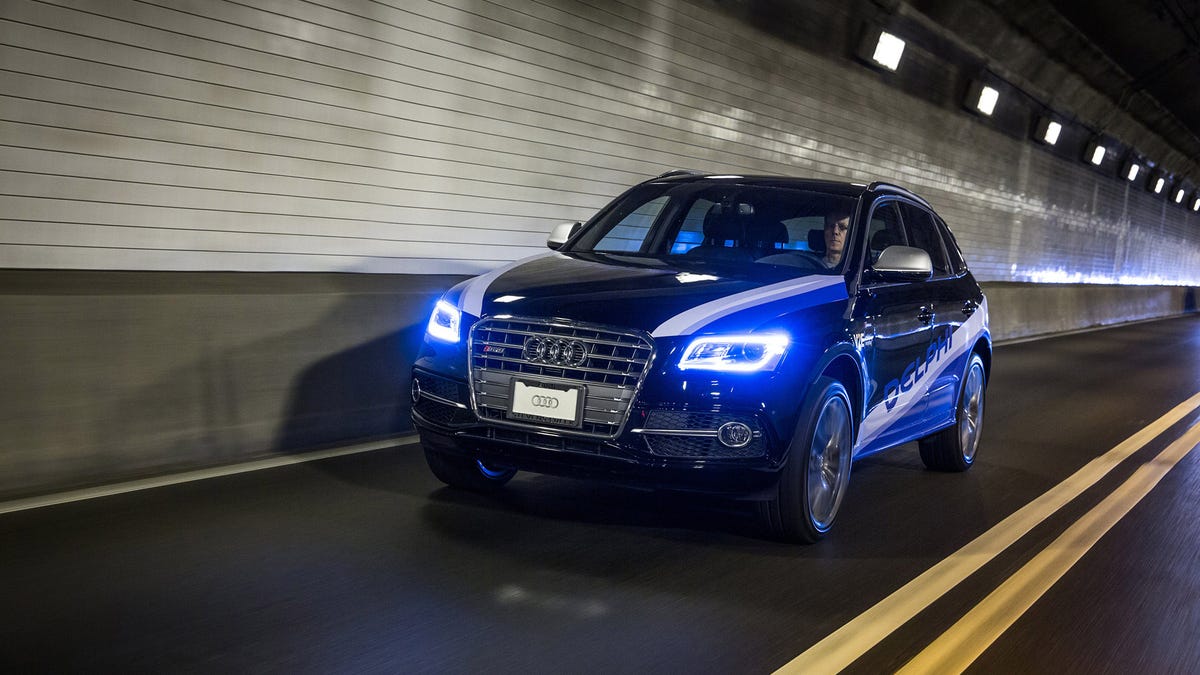Intel, Mobileye to put 100 Level 4 self-driving cars on roads
It will take some time to expand the fleet to 100 vehicles, but this partnership wants to hit the ground running, and soon.

Earlier this year, Intel announced its $15 billion plan to acquire Mobileye, a supplier of autonomous-vehicle tech. With that out of the way, the two have wasted no time in starting their plan to get advanced autonomous cars on roads around the world.
Intel announced on Wednesday its plan to deploy up to 100 Level 4 autonomous cars in the US, Israel and Europe. The hope is to get the first batch of vehicles on roads later this year, eventually growing the fleet to its full count of 100 cars later on.
Level 4 autonomy is the second-highest level for self-driving cars. It means the car's systems will be responsible for both piloting the vehicle and monitoring the environment, negating the need for a human fallback. Humans will still be able to pilot the vehicle, but in certain modes it will be entirely hands-off. The chief difference between Level 4 and Level 5 is whether or not a human even has the option to control the vehicle.
Intel and Mobileye are certainly not strangers, having partnered up in the past, most notably with BMW.
"Building cars and testing them in real-world conditions provides immediate feedback and will accelerate delivery of technologies and solutions for highly and fully autonomous vehicles," said Amnon Shashua, incoming vice president of Intel and CEO of Mobileye, in a statement. "Our goal is to develop autonomous vehicle technology that can be deployed anywhere, which means we need to test and train the vehicles in varying locations."
Intel will rely heavily on Mobileye's current slate of self-driving tech, which covers mapping, sensing and computer vision. Intel will supply an open platform and its experience with data center management and 5G communications.
As for the cars themselves, they will cover a wide variety of brands and body styles. After all, Intel and Mobileye are building a system, not a car, so they'll want to ensure it works across a wide swath of the market, because the two will make their money by selling these systems to automakers that don't want the trouble of developing their own systems.
Demonstrations of the tech will be offered to the public, as well as regulators, to help shape future policy. Intel promised that the vehicles "will also showcase novel concepts of mapping and safety validation," but it did not go into detail any further.

